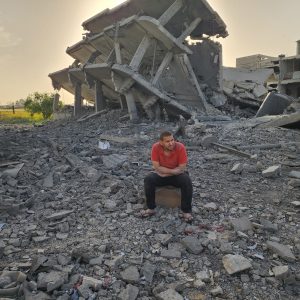Rampant chaos’: Lebanon state sector eroded by grinding crisis
Beirut, Lebanon (AFP):
Lebanon’s state institutions have reached a state of disrepair that mirrors the country’s broader unravelling amid a political crisis and economic turmoil branded by the World Bank as one of the worst globally in modern times.
Lebanon’s downward spiral has been met with inaction from authorities, who have yet to chart a path out of the three-year-old economic crisis they are widely blamed for.
Parliament, which has yet to approve a 2022 budget, has rarely convened since it was elected three months ago. Lebanon’s president and prime minister have failed to agree on a new government since the outgoing cabinet’s mandate expired in May.
Across Lebanon, decaying institutions have deprived citizens of the most basic services. Power cuts at the parliament have forced lawmakers to postpone sessions, and the General Security agency at one point this year ran out of passports.
The Lebanese army can barely afford to pay and feed its soldiers, forcing many to quit or take up second jobs.
At the environment ministry, the damage caused by the massive and deadly August 2020 Beirut port explosion has yet to be fully repaired. “The doors are still broken, so they don’t close,” Environment Minister Nasser Yassin told AFP, adding that the dividing walls and false ceilings are also still in disrepair.
Some meeting rooms have no lighting, and employees bring their own toilet paper. The main municipality building in the northern city of Tripoli — which was torched last year by demonstrators angered by the economic crisis — is a standout example of state decay.









